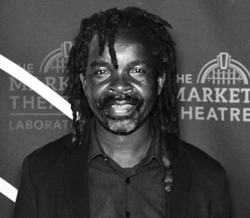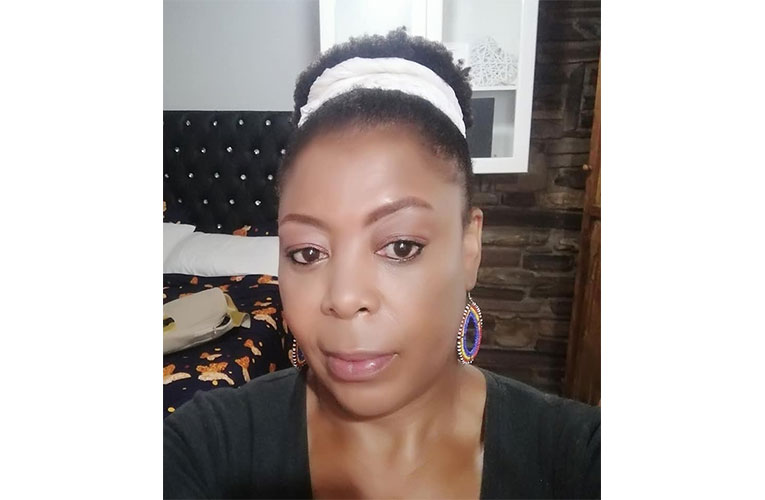Artists unite against Copyright Amendment Bill as it threatens their livelihoods
For the first time in as many years two rival federations representing South Africa’s creative and cultural industries, put aside their differences, holding a joint meeting in Newtown in opposition to the signing of the Copyright Amendment Bill as it stands.

By Edward Tsumele, CITYLIFE/ARTS Editor
There are several issues that continue to scuttle unity among South African creatives as represented by a variety of organisations and federations of different sizes and make up- that is granted. However there is currently a singular thing on which South African creatives are united around –their vehement opposition to the Copyright Amendment Bill. This fact was driven home yesterday, August 23, 2023, at Niki’s Oasis in New Town at a media conference organised by Creative Industry Federation of South Africa (CIFSA) to which various organisations were invited in a bid to mount a united front dissuading the President from signing the Bill as it stands. And quite notably, South African United Creative and Cultural Industry Federation, a rival to CIFSA was invited and represented by its founding President, soprano and increasingly arts activist Sibongile Mngoma.
SAUCCIF was formed during the height of Covid-19 in 2020 as an alternative association to CIFSA after certain artists expressed their unhappiness with the way government disbursed funds to assist artists during the devastating and rampaging global disease outbreak Covid-19. Ever since discussions have been taking place within arts circles about the existence of two associations both of which purport to represent the South African creative and cultural industry. Rivalry between the two organisations is an issue of public record.
But yesterday in a display of their displeasure, and even a certain level of maturity the two associations, alongside a number of industry organisations came together to discuss ways of torpedoing the Copyright Amendment Bill being signed as it stands into law by the President. The artists argued however that amending the Copyright Act, that they describe as outdated, was not an issue to them, and in fact they welcome that. But the issue is if signed into law in its current form, that they claim is badly framed, broad and badly written, it would leave the cultural industry much poorer that it already is.
The Copyright Amendment Bill, which has been in the making for the past 10 years, has already sailed through Parliament, and currently stuck within the Council of Provinces legal logjam-where it was returned by President Cyril Ramaphosa pending fixing glaring legal issues that could open it to litigation at the Constitutional Court if signed into law as it is.
However Chola Magkamathe, a legal expert from Samro, who gave the opening remark at yesterday’s media conference, explained that the Bill is in fact “at its tail end with consultations taking place with provincial stakeholders.”
“This consultation is taking place because Parliament did not follow the right procedures in crafting the Bill. But the Bill remains as it was, and If it gets through and signed into law as it is, it is bad for the rights of creators. This does not only affect musicians, but a whole range of sub-sectors in the creative and cultural industries, such as writers, filmmakers, composers and so forth and so on,” she told the gathering.
What appears to be the sticking issue is the fact that in the Copyright Act –that is the one that the government wants to amend and update, there is a set of clauses called the Exception, which allows users of copyrighted material to use with restrictions creators’ works.
“These exceptions are under a clause called the Fair Deal (under the current South African Law). But the Copyright Amendment Bill seeks to replace that with an American version called The Fair Deal, whereby anybody can use a creator’s work without paying for it. Anyone who wants to challenge are free to approach the courts for a remedy and compensation. The problem then is this: Let us suppose you approach the court because someone used your works without permission and without paying for it, and you win in court for compensation. The law says you get paid what you would have been paid if you had licenced the rights. There is the problem: If for argument’s sake you were entitled to a compensation under licence for an amount of R10, and your cots for litigation amounts to R10 000, you end up losing,” Chola Magkamathe contextualised the gravity and threat posed by the bill to artists.
Among those who spoke especially concerning a unity for purpose by artists were CIFSA Gauteng Deputy President Thobela Dlamini, CIFSA President Sibongile Mngoma, musicians Arthur Mafokate, Mercy Phakela, Mzwakhe Mbuli, Tebogo Sithathu, Ntsiki Mazwai and Princes of Africa Yvonne Chaka Chaka. The programme director was businessman and producer Owen Ndlovu. Ndlovu himself is embroiled in a long running bruising dispute with SABC over popular Song of the Year competition, that he argues the public broadcaster illegally infringed on his rights when they cancelled a contract with him a few years ago, only to start the same competition under a slightly different format.
At yesterday’s event, the two leaders of the two federation committed to work together on the issue of the Copyright Amendment Bill, approaching government, and If needs be, the President of the republic as a united front, an approach that Mzwakhe said it worked successfully for locally based artists during the apartheid years under the umbrella of the United Democratic Front with their exiled counterparts -under the auspices of the Cultural Boycott Campaign.
And listening to the speakers strongly voice their need for unity, especially the leaders of the two federations, Mngoma and Dlamini, it would seem that the two federations have eventually found each other on the single thing that poses a real threat to their members’ livelihoods –opposition to the Copyright Amendment Bill. Or is that so, especially because even as they spoke with one voice on the issue, it was obvious that the road to full unity for the creative and cultural and creative industry still has some distance to cover. References to backstabbing among the leaders of the creative sector, particularly when it comes to dealing with government officials was made by several of the leaders publicly during the proceedings.
But perhaps Copyright Amendment Bill –the elephant in the room will eventually achieve that much desired unity in the South African creative and cultural industry for the health and development of a sector so many depend on, and most importantly, on which the country’s Gross Domestic Product’s growth prospects depend on depends on.
In the meantime, CIFSA Gauteng Deputy President Dlamini announced that on Friday, 25 August 2023, members of CIFSA will be marching to provincial legislatures in all the country’s nine provinces, expressing their unhappiness and “putting pressure on the legislatures over the Bill.” The marches will commence at 9am in each of the nine provinces, Dlamini revealed.










